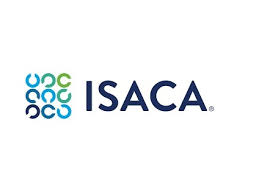Blockchain Applications beyond Cryptocurrency: Transforming Industries

After being invented in 2008, blockchain has evolved the way we transfer, secure, and store data. It was initially used as a foundation for cryptocurrency, but it was just the beginning. Blockchain has always been linked with cryptocurrency and digital money. Blockchain can power cryptocurrency and it has reached beyond the realm of digital currency. This technology has reshaped different industries and can modify traditional systems. It has been recognized by the industries due to its inherent qualities like– decentralization, transparency, and immutability.
Blockchain technology is commonly used to securely transfer and store digital assets like cryptocurrency. It minimizes the need for a third-party intermediary. Individuals can use this technology for smart contracts, automated processes, and transactions. Moreover, this technology is used to launch decentralized applications which are not by a single entity.
About Blockchain Technology
Blockchain is a record-storing technology where every transaction is stored in a ‘block’ and gets linked with the next in a ‘chain’. This record is distributed through a network of computers and cannot be modified or changed once added to the ledger. These properties make it an immutable system of record-keeping with increased security, clarity, and trust which is used to store a variety of data and digital assets.
Some Advantages of Blockchain Technology:
- It abolishes the need for third-party intermediaries, makes blockchain-based transactions faster, and cheaper, and reduces the chances of human error.
- Blockchain has a decentralized system which makes it more resilient to malicious attacks.
- This technology can be used to create smart contracts that are self-executing and are stored on the blockchain.
- Blockchain technology minimizes the risk of fraud and makes sure that all parties that are involved in a transaction are fairly treated.
- Blockchain technology stores data securely, reducing the risk of data loss.
Some Disadvantages of Blockchain Technology
- The transactions from blockchain technology are not always anonymous and can be traced back to their originator.
- Blockchain technology is resource-intensive, which means that it requires strong hardware to operate effectively.
- Blockchain technology is new and there is still an existence of unknown error that needs to be addressed.
- Blockchain technology is user-friendly but sometimes it can be difficult to understand and use, especially for those who are new to this technology.
- Blockchain is not always cost-effective, as software and hardware that are required to run it can be expensive.
We are providing do my exam help UK, and encourage students to reduce the flow of academic work by offering them affordable assignment services in the UK. The writers here can create 100% unique assignments that help students to excel in their academics.
Potential Application of Blockchain Technology in Industries
In this blog, we have mentioned some of the real-world applications of blockchain technology that are evolving industries.
Blockchain in Healthcare Industries:
In the healthcare sector, employees have to deal with a massive amount of patient data. Blockchain has the potential to evolve the healthcare sector by ensuring secure storage of sharing of patient data. With this system, healthcare providers can identify patients’ identities ensuring that the right data is assessed at the right time.
Blockchain technology enhances data privacy and security, reduces medical errors, and enables a flawless sharing of patient records for improved care coordination. This system also facilitates the secure management of clinical trials, pharmaceutical supply chains, and the accuracy of medical devices.
Blockchain is Real Estate Sector:
The real estate market is filled with cumbersome paperwork and verification processes. This can be streamlined with blockchain. Blockchain technology can be used to handle property transactions through the use of smart contacts. The system records the property transaction and verifies the ownership to make the ownership and transferring deeds become more efficient. Also, it reduces the time taken during property sales. The transparency of blockchain ensures reduced fraud and offers unparalleled clarity to all the parties involved.
Supply Chain Management:
Blockchain technology is known because of its transparency. It can increase transparency and improve traceability in supply chains. It records every transaction and supply of goods on an immutable ledger. Blockchain offers an auditable trail to prevent fraud, counterfeiting fair labor practices. Organizations and companies who want to trace the origin of raw materials, verify their authenticity, and validate the ethical sourcing of products. Besides this, supply chains involving many stakeholders and processes are difficult to handle. This technology can simplify this by offering real-time tracking of goods.
Banking & Financing Sector:
Blockchain adoption is a natural fit in the banking and finance sectors as cryptocurrency is a form of finance. Due to this existing familiarity, it is easier for these sectors to adopt blockchain. The use of blockchain technology in the banking sector will improve transparency and efficiency by reducing the need for intermediaries. It also enables peer-to-peer cross-border payment. Additionally, this system makes the transaction faster and more cost-effective. The decentralized nature of blockchain reduces the chances of unauthorized transactions.
This system can help banks reach the unregistered population in the market, where traditional banking services are unavailable.
In a nutshell,
Blockchain technology has the potential to evolve numerous industries and the way we conduct business. With the development and widespread use of the technology, we can expect a visible increase in companies utilizing its advantages. Also, blockchain technology has a significant impact on digital payment. In the future, blockchain will become a core part of different business operations, enabling them to operate more efficiently and securely. Blockchain can revolutionize various industries that are beyond cryptocurrency. It has a decentralized and transparent nature that offers solutions to complex industry challenges.
Author Bio:
Neha is a professional blog writer, passionate about crafting engaging content that captivates readers. She has expertise in various topics. Neha works to provide valuable insight and practical tips to help readers lead fulfilling lives. Apart from writing, she enjoys exploring new destinations, reading different genres, and writing fictional stories. Stay connected for Neha’s upcoming blogs on a wide range of intriguing topics. Neha is also a reliable assignment writer working at https://payforassignments.co.uk, so if you need to submit your assignment on time, then get in touch.





